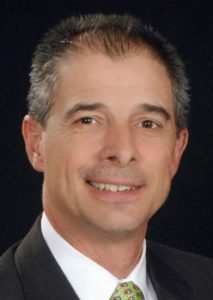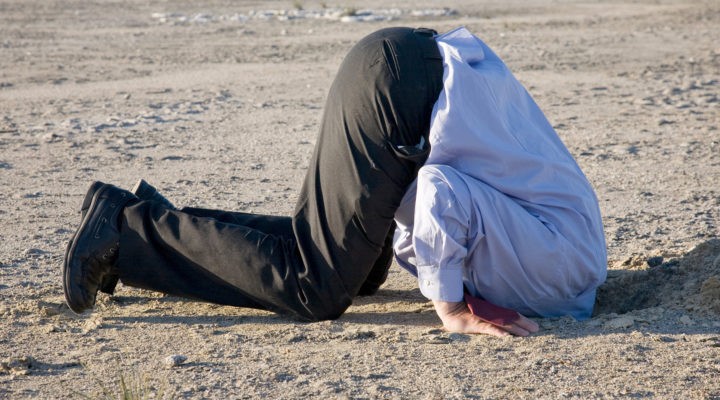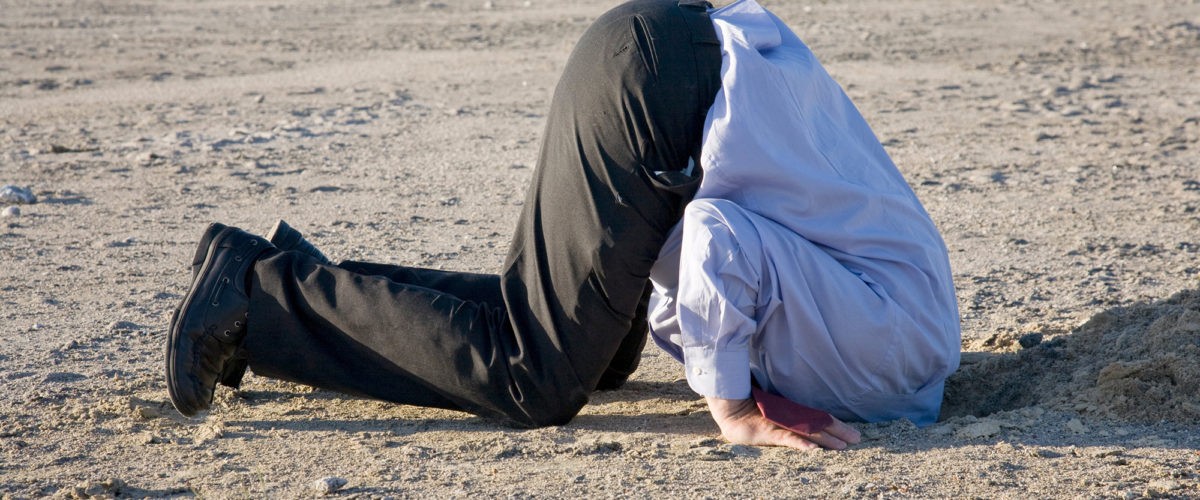“Denial is not a river in Egypt.”
I used to hear that sarcastic and humorous pun without really understanding it. After reading too much news for the last year, I understand it too well now.
If you’re as slow as I was to catch on, let me spell it out: “Denial” is not the world’s longest river, the almost mythical source of life, serpentining from Lake Victoria through four African countries before emptying into the Mediterranean at Cairo, Egypt. (That’s “de Nile.”)

Russ Dean
Denial is not a river in Egypt — but it may be the equally long, similarly torturous route to our own demise.
Winston Churchill is often quoted for his wisdom, “Those that fail to learn from history are doomed to repeat it.” If we are not willing to look honestly at the past, the future is probably set for us.
“There is nothing new under the sun,” as the old sage of Ecclesiastes noted. Just because we’re tech-savvy and probing commercial ventures to the edge of space, we’re really no smarter than the ancients. The same blindness and fear that killed them also will be our demise. The enemies will be different, the weapons more powerful, but the defeat never changes. If we are not willing to honestly see our past, we may not have much of a future.
Our broken Twittersphere recently erupted over a comment made by Mike Pompeo, the former U.S. secretary of state. Surely there is enough angry rock throwing, the Right at the Left, the Left back at the Right. I do not want to wade into that futile battle, but the comment, given the weight of this national bully pulpit, really is staggering. On July 5, Pompeo tweeted: “If we teach that the founding of the United States of America was somehow flawed. It was corrupt. It was racist. That’s really dangerous. It strikes at the very foundations of the country.”
When the nation was founded, purportedly on “liberty and justice for all,” the Africans who were breaking rocks and slaving over cotton were not even regarded as human beings. That’s not flawed? The first slaves were brought to the continent in 1619, and it was more than 150 years before these enslaved Americans were counted at all. That’s not a racist beginning? They were regarded as just over half a person each in the “Three-Fifths Compromise” of 1787. That doesn’t tell us all we need to know about whether there was any corruption in the founding of the nation?
“How could we claim to be Christian Americans if we were not willing to acknowledge the sins of the past and to confess them as a means of making amends?”
Knowing our history does not make us anti-American. It does give us a chance to be moral Americans, thoughtful Americans, compassionate Americans. And how could we claim to be Christian Americans if we were not willing to acknowledge the sins of the past and to confess them as a means of making amends? (In my Southern Baptist upbringing, such confession — and the ubiquity of our sinfulness — was essential theology.)
This dangerous kerfuffle over the teaching of Critical Race Theory is sad and confounding. I have listened to the New York Times’ podcast of “The 1619 Project” twice — and I still don’t hate myself for being white. I do understand more, from hearing some of the stories of African Americans, about the physical and emotional pain so many of our Black sisters and brothers continue to endure. Listening and reading appropriately do help me to understand that systemic racism is a reality that is part of the fabric of our culture.
Acknowledging reality does not make me hate my country. It makes me want to be part of a solution. Denying that we have a problem is not part of any solution. Denial is not a river in Egypt.
And it’s not just on looking at our past, not just on evaluating the issue of race in our culture that we seem to have a problem with reality.
“Acknowledging reality does not make me hate my country.”
On climate change, the data are clear (as they have been for many years), yet a frightening number of Americans can’t even acknowledge the terminology, much less admit there is any human causality.
Denial is not a river in Egypt.
On the controversial topic of evolution (I don’t know whether to laugh or cry as I type those words), the evidence has been accepted as scientific fact for about a century (that’s 100 years!), yet within a large percentage of the population, heavily weighted by the evangelical Christian community, evolution is mocked as “just a theory.” (In the same scientific terms, gravity is just a theory, too.)
Denial is not a river in Egypt.
On the last U.S. presidential election, despite overwhelming evidence that the election was free from fraud, despite nearly 90 failed lawsuits alleging otherwise, despite Republican election officials and secretaries of state and governors and the then-majority leader of the Senate all affirming the results of the election, despite the then-director of the Cybersecurity and Infrastructure Security Agency calling it “the safest election in U.S. history,” NPR reported last December that only 24% of Republicans accepted the result.
Denial is not a river in Egypt.
On conspiracy theories and the general state of our disconnect with reality, the Public Religion Research Institute reported in May that 25% of white evangelical Protestants believe “the government, media and financial worlds in the U.S. are controlled by a group of Satan-worshipping pedophiles who run a global child sex trafficking operation,” and that if QAnon were a religion, it would be as large as “all white mainline Protestants.”
Denial is not a river in Egypt.
Jesus said that the truth would set us free, but when so many people refuse to acknowledge the truth that is before them — not in opinion, but in studied data, empirical research, factual analyses — you have to wonder, don’t you? Truth? What is truth?
Denial is not a river in Egypt. If only we could be so lucky.
Russ Dean serves as co-pastor of Park Road Baptist Church in Charlotte, N.C. He holds degrees from Furman University, Southern Baptist Theological Seminary and Beeson Divinity School. He and his wife, Amy, have been co-pastors of Park Road since 2000. They are parents of two sons. Russ is active in social justice ministries and interfaith dialogue. He is author of the new book Finding a New Way.
Related articles:
The Jesus story is not a conspiracy theory, honest! | Opinion by Bill Leonard
On climate change, the political divide has widened as more Americans overall express concern
Repeating Exodus through vaccine denial | Opinion by Wendell Griffen


